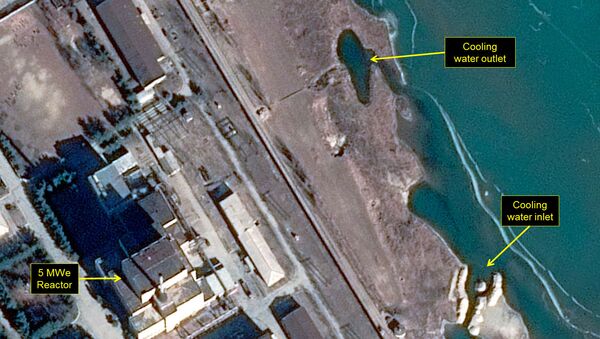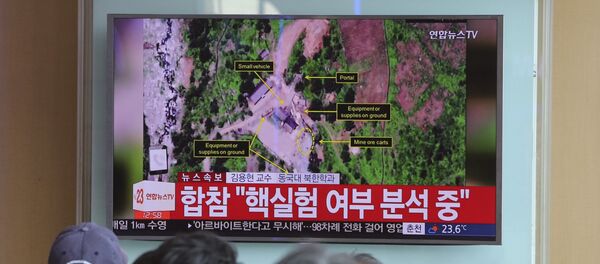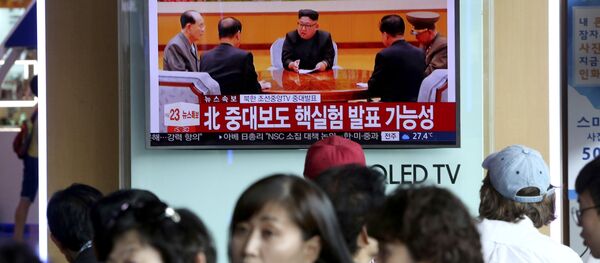"Based on a religious decree by Iran's leader [Ayatollah Ali Khamenei], Tehran is totally against any production of weapons of mass destruction," he said in an interview.
Iran has a nuclear program that included a research reactor, uranium mines, uranium processing facilities and uranium enrichment plants. It maintained for decades that its nuclear program was purely peaceful and civil, but was slammed repeatedly with sanctions by the US and the UN, alleging that Iran was secretly trying to develop a nuclear weapons program.
The Iranian lawmaker voiced his concern over the growing number of nuclear weapons in North Korea, saying that North Korea's missile tests are Pyongyang's way of showing the United States that they are indeed powerful, especially since the United States has a history of interfering in world politics.
North Korea's unpredictable leader Kim Jong-un is sending a message to US President Donald Trump that Washington cannot just instigate a military attack on his country without facing dire consequences. "As we see, US missile systems in the Far East have not yet managed to detect North Korean missiles and this is a big defeat for Pentagon," Natanzi added.
The Iranian lawmaker also said that North Korea's worries about Trump's controversial policies are understandable and that the country will most likely continue to commit nuclear tests unless the US changes its policies toward North Korea.
The US and North Korea have had a hostile relationship for decades. They were adversaries in the 1950 to 1953 Korean War, during which the US air force bombed parts of North Korea, killing 20 percent of the country's population. The conflict was never truly resolved, only frozen with an armistice.
Natanzi also contended that the current tensions in the Far East could have led to new rounds of mediation talks between Seoul, Tokyo and the UN Security Council, if it wasn't for Trump's inflammatory comments.
Just last month, Trump said during a meeting in New Jersey, "North Korea best not make any more threats to the United States… They will be met with fire, fury and frankly power the likes of which this world has never seen before."
Following Trump's bellicose comment, North Korea threatened to attack the waters around the US territory of Guam with missiles.
The Natanzi says North Korea's tests are just simply "a defense reaction to such behaviors."
"The plight of insecurity and war in the Far East will engulf all the eastern Asian countries and the threat of war is imminent unless the two sides resume their political talks," he added.
Natanzi concluded the interview by saying the US must put an end to its threats against North Korea if it wants Pyongyang to stop testing missiles. The two countries could also benefit from a plan like the one signed between Iran and the West, he suggested.
In July 2015, Iran, the five members of the United Nations Security Council, Germany and the European Union, all agreed that Iran would eradicate its stockpile of medium-enriched uranium through the Joint Comprehensive Plan of Action, otherwise known as the Iran nuclear deal. Despite ongoing US allegations, Iran has always been found by the International Atomic Energy Agency to be in compliance with the deal.




